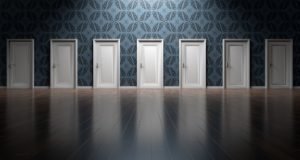
“Solitude is impracticable, and society fatal.” Ralph Waldo Emerson
In an episode of the TV show Gilmore Girls from the early 2000s, Alexis Bleidel’s character, Rory Gilmore, gets caught up in a scandal for breaking into her school with a group of girls in the middle of the night as part of a hazing ritual. She is called into the headmaster’s office and chastised for not having been a better leader and going along with the plan. In fact, Rory had been summoned by the same headmaster weeks earlier over concerns that she was not fitting in, and encouraged to work a little harder at integrating into Chilton. She needed to make friends, socialize instead of burying her head in books while at school.
While healthy social skills play an important role in being successful in modern society, they have been prioritized to the detriment of another key element of wellness: the ability to be alone. The COVID-19 pandemic has forced unending quiet time on a generation of teens for whom being alone is a form of punishment. To be fair, people of all ages are reporting increases in mental health concerns as a result of COVID-19 measures and regulations. The latest report from the Kaiser Family Foundation estimates that 4 out 10 adults presented symptoms of depression or anxiety during the first year of the pandemic, compared to 1 out of 10 in 2019. The segment of the population with existing mental health conditions experienced more significant and serious symptoms as treatment and support resources went virtual or stopped altogether. Among people in recovery, there was a 32% increase of non-prescription fentanyl use, 20 % increase in methamphetamine use and a 10 % increase in cocaine use according to Millennium Health, a national urinalysis provider. The University of Baltimore’s Overdose Detection Mapping Application Program (ODMAP) recorded an 18% increase in drug overdoses.
In the school age population in particular, there was an average of 27% increase in mental health related ER visits. It is believed that incidents of suicides have also gone up for this group, though that remains a hotly contested interpretation of the data. Requests for outpatient services have overwhelmed the system, and there aren’t enough providers to meet the demand.
Regardless of one’s belief about the lethality of the virus and the necessity for strict social distancing measures, there is a common thread connecting those who suffer under quarantine and those who slough off social distancing guidelines: Their wellbeing is contingent on a certain social dynamic. Having become so reliant on daily routines and social rituals to keep us balanced, a considerable number of people experienced marked reductions in functioning once those routines and rituals were suspended.
The long-term impacts of the pandemic are predicted to endure well into the next generation with setbacks occurring in many spheres, from education to commerce to health. Thus, while promises of resuming life as usual abound now that vaccines are available, it is worth pondering whether “normal” will ever feel normal again. For instance, the wearing of masks, certain social distancing measures, and remote business operations are likely to be in place for some time. Correspondingly, rather than holding out hope of returning to “normal life,” it seems more prudent to consider pandemic-resistant wellness skills for mental health, like embracing solitude.
Ironically, while the rest of the world was agonizing in lockdown, Jordan Jonas, the winner from season 6 of Alone, a show where contestants are dropped in off in the wilderness to test their ability to survive alone, was relishing it. He lasted 77 days in near total isolation without losing his mind. In fact, by the time the contest was called, he found himself a bit annoyed at being pulled out of his retreat. He disclosed his secret to surviving in isolation during an appearance on Wait, Wait, Don’t Tell Me! as having secure relationships in his life and very few if any ghosts in his closet.
Although Mr. Jonas had the advantage of earlier experiences with such solitary pilgrimages, his ability to thrive in such seclusion is nevertheless remarkable. Indeed, even people who enjoyed living alone prior to the pandemic revealed struggling in the absence of human contact after weeks in quarantine. Still, while the ability to withstand prolonged isolation will not be a Rorschach test for mental health, the experience of poor functioning as a result of having to quarantine with one’s family in an otherwise safe environment should be cause for considering the benefits of developing a healthy capacity for solitude.
Sheila LeGrand is a licensed psychotherapist residing in Massachusetts with her husband and their three sons.
Like most of the pictures on TeensParentsTeachers, the picture posted with this article is courtesy of a free download from Pixabay.com.


